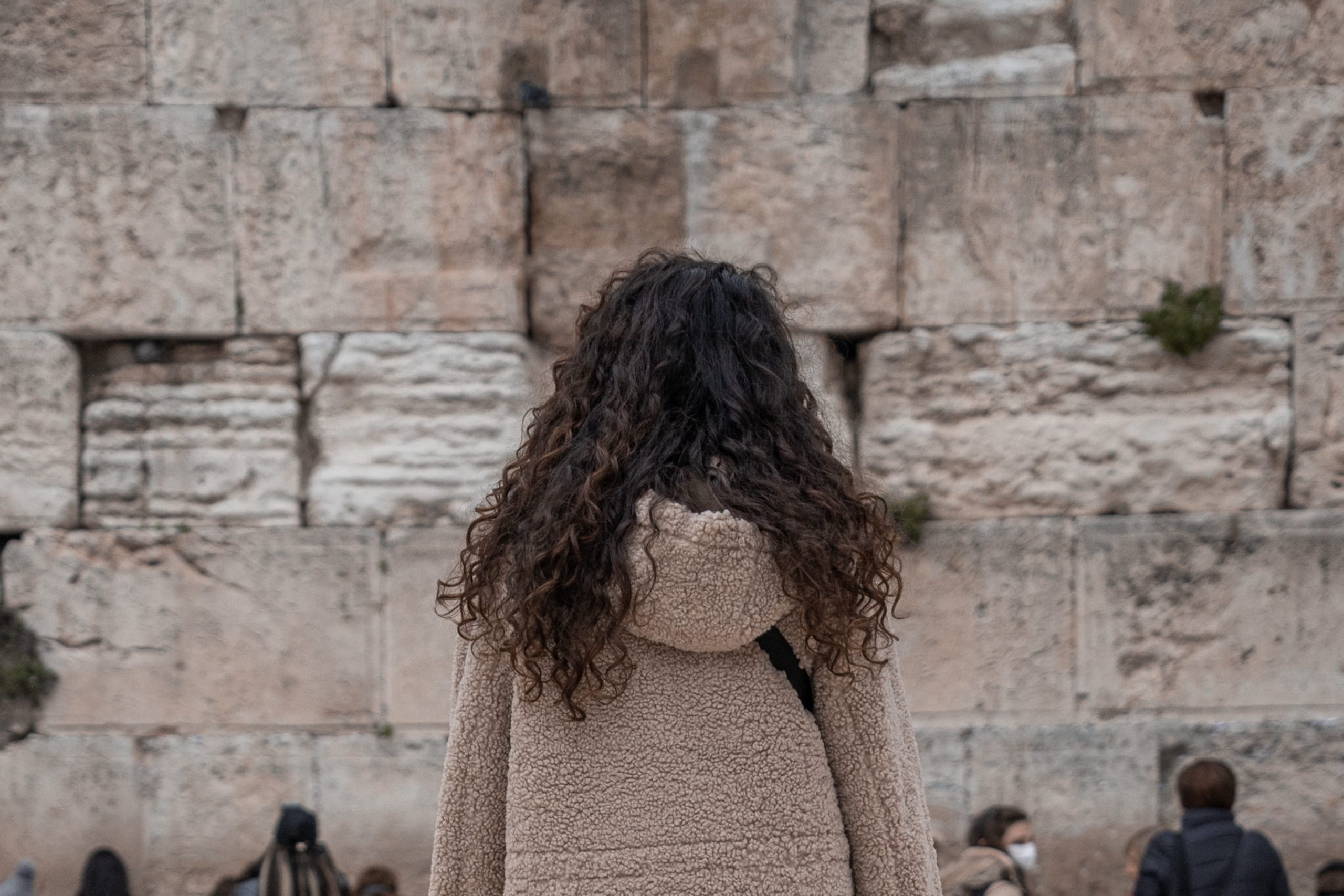
It must’ve been a day like any other day as she trodded the dusty Jerusalem streets. The sun might have peeked around the corner of the stone walls just the same, with the smoke of sacrifices transported by the air, and conversations humming in the courtyard while business haggled in the streets.
But it didn’t matter what the day was like. Regardless, the prophet Anna would make her way to the temple again, and again, and again. Luke said it was almost as if she never left her worship, “with fasting and prayer night and day” (Luke 2:37).
Luke gives us only a few sentences about Anna’s life (Luke 2:36-38). Did she amount to anything more than her time at the temple? If we met her in real life today, we’d probably forget about her tomorrow. Widowed for over fifty years with no children and little material fortune makes her an unlikely portrait preserved in history.
Though she may appear forgettable, her lifetime saw unforgettable suffering. In her research, Rebecca McLaughlin notes that Anna would’ve watched the tables turn in Jewish history: “At 84, she was born at a time when the Jews were self-governing, lived through the prosperous reign of Queen Salome Alexandra, and saw the crushing end of Jewish sovereignty when the Romans took over in 63 BC.” [1]
Did she see the devastation of her nation’s autonomy firsthand? Did she live with gruesome memories of the Roman occupation? Did her loved ones die in battle or siege? How did her husband die, and did she lose her livelihood with him? We can only imagine how these events shaped Anna by the time we meet her in Luke’s account.
Even if we are not widowed, or childless, or citizens of the Roman Empire, Anna’s story is woven in ours. Do you feel like your world has crumbled? Are you oppressed by human authorities? Have you lost a loved one? Or never gotten what society expected you to have, such as marriage, or children, or the American dream?
So much of Anna’s story amounts to her loss. An empty widow’s home made the temple her abode. Lack of a family led her to practically live in the Lord’s house. Ironically, even the temple where she worshipped was a reminder of her people’s lost freedom, as it is known today as Herod’s Temple, expanded by the “client king” of Rome.[2]
What strikes me about Anna is that even though her life was constructed by her loss, she was not paralyzed or blinded by it.
My tendency is to recoil from a world that takes things away from me. I would hide for days with my face in my lap if I could. Anna didn’t—she looked up. And one day, she saw Christ.
What if Anna stayed away from the temple that day? Or turned her nose up at God who blessed and took away, instead of turning to him and his people? She would have missed seeing her salvation, carried by a teenage mother up the temple steps. She would’ve missed Jesus.
If we look too long on what we’ve lost, we can become blindfolded to the salvation right in front of us.
We can look at loss for a while and mourn, as we often should. Grief is no blindfold, but an eye prescription that sees all is not as it should be.
It wouldn’t have been wrong for Anna to grieve her losses. Even though we have no account of her doing so, it’s hard to imagine she wasn’t above sorrow or weeping over what she would never have or get back. Jesus himself is described as being “acquainted with grief,” and we reflect him when we lament good things that never were or are no more (Isaiah 53:3).
But despair looks too long at loss and locks us in its den. There is no light at the end of the tunnel of the despair, which implies that there is no one and nothing left, and this couldn’t be further from the truth. In their saddest psalms, the psalmists could see their salvation like a light at the end of a dark tunnel (Psalm 42-43, 88:1). Even when they felt hopeless, they could see glimmers of hope in the darkness. By the power of the Holy Spirit, we can, too. Christians abound in hope, even if we abound in nothing else (Romans 15:13).
I write this knowing that despair can be easier to believe some days than this truth. I can’t deny that I have cried in the night, clung to the darkness, and scowled at church on Sundays, wondering, “God, why did you take it, or him, or her away?” Maybe you’ve done this, too.
Anna’s story teaches us, however, that day, after day, after day, no matter how much we lose, we will have God.
And we will see him, as he raises our heads to look up at him.
Look up. Don’t miss him.
Surely, we will “look upon the goodness of the Lord in the land of the living” (Psalm 27:13).
[1] Rebecca McLaughlin, Jesus Through the Eyes of Women: How the First Female Disciples Help Us Know and Love the Lord (Austin, TX: The Gospel Coalition, 2022), 43-44.
[2] Andreas J. Köstenberger, L. Scott Kellum, and Charles L. Quarles, The Lion and the Lamb: New Testament Essentials from The Cradle, the Cross, and the Crown (Nashville: B&H Publishing, 2012), 27.

